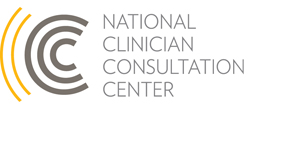Case of the Month: Possible False Positive HIV Test
Case Summary
A physician called about HIV screening for a 38-year-old man who wanted to be tested because he was getting married and had a history of injection drug use. He had been sober for 2 years at the time of the screening test. The patient had initially had a 4th generation HIV test that was repeatedly reactive but the Western Blot (WB) was indeterminate. The physician did not have information about which WB bands were reactive. The patient then went to Planned Parenthood with a buccal swab, with negative results. A repeat 4th generation test was done at the physician’s clinic approximately 6 weeks later. Once again the test was positive, repetitively reactive ELISA results, and an inconclusive Western Blot test. The patient’s viral load was checked and was negative (VL<20). The patient’s partner had also been sober for 2 years and had negative HIV screening tests multiple times as well. Given this patient’s risk history, how should these test results be interpreted?
CCC consultant advice
This is likely a false positive 4th generation test. A Multispot follow-up test could be used to differentiate HIV type 1 vs. type 2 antibodies, as the Multispot is the only test that provides this specificity. Also, if using 4th generation testing, the Multispot test is the next stage in the algorithm. If there is significant concern regarding HIV-2 infection, it may be helpful to identify the Western Blot bands, as some patterns can be more suspicious for HIV-2. Infection is unlikely if any of the bands that usually reveal HIV (p24, gp41, and gp120/160) are negative. False reactivity on the EIA or Western Blot assays can be due to HLA antibody, autoimmune diseases (such as lupus), cross reactivity to yeast, or to other contaminating antigens used to prepare the HIV antigens. HIV infection is unlikely in this scenario and this is likely a false positive 4th generation HIV test.
Because CCC consultations are based on information provided by the caller or clinician accessing the online consultation center, without the benefit of a direct evaluation or examination of the patient, consultations are intended to be used as a guide. They do not constitute medical advice and are not to serve as a substitute for medical judgment. This Case of the Month includes consultation based on the most up-to-date evidence at the time of its publication. To learn about current recommendations, please call one of our clinical consultation lines.
 University of California, San Francisco |
University of California, San Francisco |
